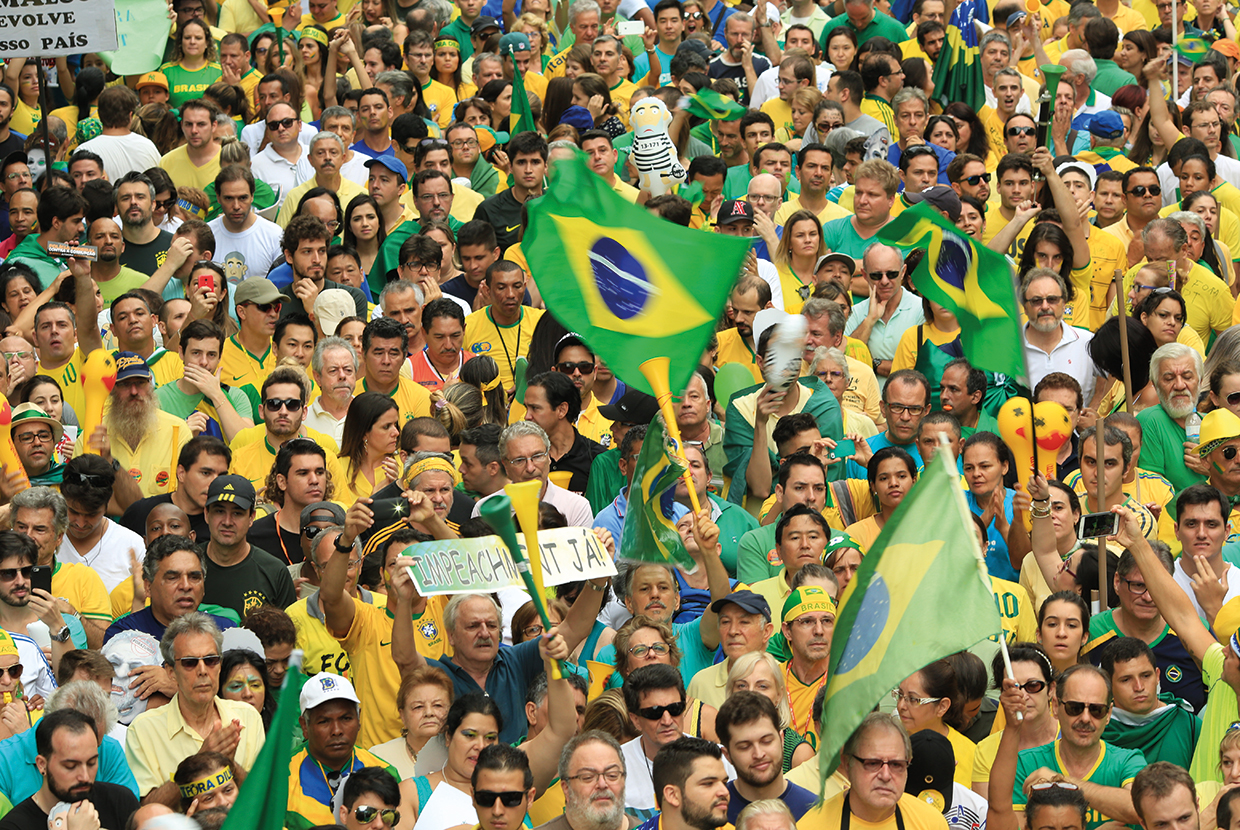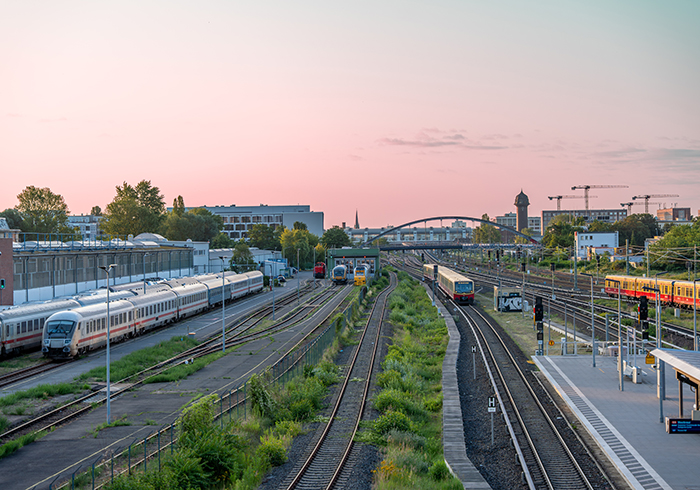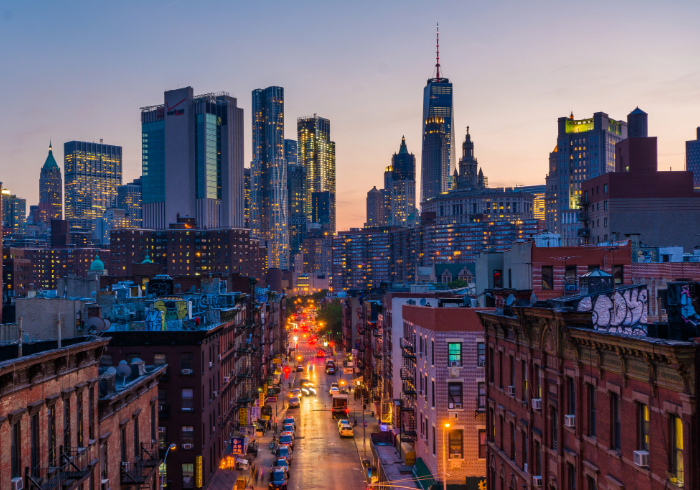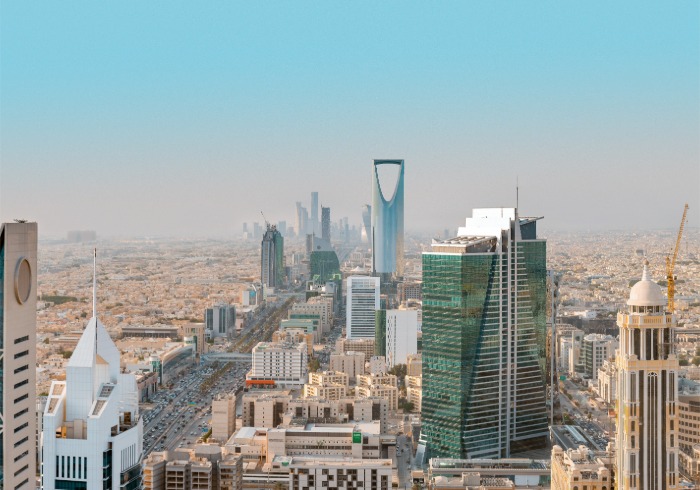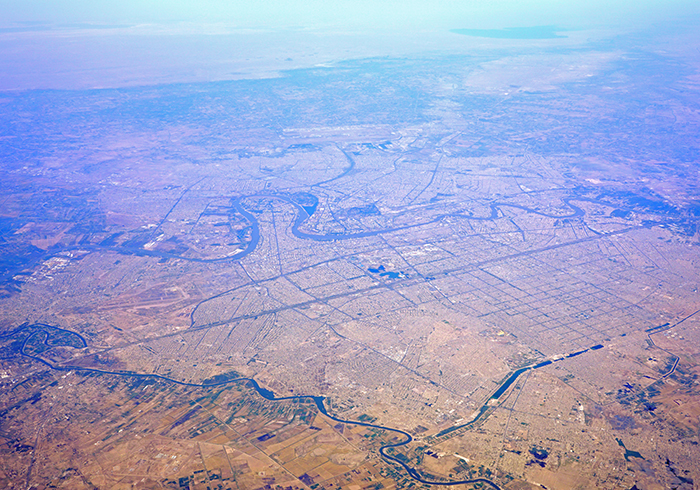As Brazil attempts to eliminate deeply-rooted corruption, its suffering economy is leading to consolidation in most markets, which should help the country come out of the crisis stronger. Melodie Michel reports from São Paulo.
Brazil has been the subject of many headlines in recent months, and sadly it has little to do with the upcoming Rio Olympics. Operação Lava Jato (Operation Carwash), a broad investigation of corruption within the Brazilian government, aims to prove the existence of a money laundering scheme suspected of moving more than B$10bn (US$2.8bn), and potentially involving 48 current and former legislators, including the former President Luíz Inácio Lula da Silva.
Current President Dilma Rousseff, former chairwoman of the board of Petrobras, the Brazilian state-owned oil company identified as heavily involved in the scandal, is now fighting for political survival: after many demonstrations, the lower house of Congress voted on April 17 to impeach her, and the decision is now going to the Senate, where a simple majority would lead to her suspension for 180 days, and her investigation by the court.
If she is ejected from power, her vice-president Michel Temer will most likely assume the presidency until the next elections in 2018, unless he too gets impeached, as he is also suspected to be part of the corruption scandal.
The political turmoil of the last year has had dramatic economic consequences: Brazil entered recession in 2015 with a 3.8% contraction of GDP, which is expected to continue in 2016 and 2017. The country’s sovereign rating was downgraded to junk status by Moody’s, Standard & Poor’s and Fitch, and the Brazilian real lost about half of its value against the US dollar in 2015, though it experienced a jump upon the news of Rousseff’s impeachment vote result.
But for all this grief, the atmosphere on the ground is far from being all doom and gloom. In fact, delegates and speakers at the GTR Latin America Trade Finance Conference in São Paulo in April all agreed that Brazil will come back to the forefront of the world trade scene by 2018, and that the country is too significant for banks and businesses not to maintain a presence there.
Short-term caution
However, it would be naïve to think that the crisis has had no impact on trade finance. Brazil is one of the countries from which Citigroup, Barclays and HSBC have withdrawn as part of their strategy to refocus on core markets, and the country’s poor economic performance undoubtedly played a part in those decisions.
Even for those who remain, caution is needed. “In the short term, one of the main concerns is on the pricing. When you have a country downgraded and with a negative outlook, your main concern is whether you are pricing correctly on deals,” Angela Martins, chief Brazil representative at National Bank of Abu Dhabi (NBAD), tells GTR.
“Further to that, since the economy is not growing, you don’t have a big demand, so then you have two things that are impacting pricing: supply and demand placing pricing below where the risk is, and on the other hand potential further downgrades. This is consuming a lot of time for all banks when trying to price a transaction,” she adds.
Auro Carlos Pagnozzi, commercial director for ICBC in São Paulo, explains that the bank is looking closely at the development of the carwash scandal, “which involves several potential future clients of ICBC”, and developing its Know Your Customer (KYC) procedures.
All banks have started following political developments more closely, an initiative hailed by Martins: “Of course KYC is essential – we have to be very close to our clients and understand them very well. But nowadays more than ever, it is very important to follow very closely the political situation of the country you are in to anticipate economic changes. It is even more important than what you are doing with your client, because sometimes you have a very good client, but because of political changes, they will be impacted negatively.”
Indeed, the corporate world is suffering, and according to local sources, looking for more credit or restructuring of existing loans in order to weather the storm. One Brazilian banker, who preferred not to be named, explains that local banks, at least the large ones, are in a good position to provide that lifeline: “Banks have a responsibility to understand what they are going through. Some companies will not survive. The sense is that it’s going to be a very tough 2016 and a tough 2017, but in 2018 we will see growth again, which means that the second half of 2017 should see the economy get better. This means we need to provide solutions to help companies for another six months to a year,” the source adds.
In the insurance world too, the effect of the crisis is being felt. “Of course there has been a higher claims activity in the sector: banks have been suffering a lot more in 2015 than the year before, and so have we as a consequence,” says Andreas Dobner, head of credit and surety Latin America hub at Swiss Re.
Insolvency data on Brazilian companies is hard to come by, and Coface’s latest report, published in March 2015, explains that information such as a company’s segment, its number of employees or the amount/cost involved in an insolvency case is not easy to access or publicly available. But it is clear that the number of bankruptcies should have increased in 2015, and this is leading to consolidation in many sectors.
Consolidation
Speaking at the conference, Guilherme Nastari, director of Datagro and of the Brazilian Sugar and Ethanol Exporters Association (AEXA), said that he expects a lot of consolidation through mergers and acquisitions (M&As) in the sugar sector in Brazil in coming years.
In fact, according to Pagnozzi, ICBC has just been awarded a mandate to participate in an M&A from a Chinese investor to invest in a Brazilian agricultural company. The lower real and depreciation of Brazilian assets are making this an ideal time for investors into Brazil, and this is reflected in figures: in January 2016, the country received US$5.5bn in foreign direct investment (FDI), US$1bn more than what was expected. Now the government forecasts US$60bn of FDI inflow for the year.
“2015 was a great year for Canadian investments into Brazil,” Guillaume Legaré, chief Brazil representative for National Bank of Canada, tells GTR. “We see opportunities for our clients to make acquisitions with the lower real. Our clients consider not only the FX side, but the companies’ potential to export, and the fact that assets are more accessible, which means that it’s a strategic moment to get into the Brazilian market.”
In the oil and gas market, consolidation is happening on a broad scale. Teak Capital Corporation, a Singapore-based company specialising in corporate restructurings, has acquired Brazilian pipe manufacturer Solina Global, and is now in the process of purchasing smaller players in the market to build a large oil and gas services company. According to Lampros Vassiliou, chairman and CEO of Teak, the crisis has led to many engineering procurement and construction (EPC) projects being abandoned. “We’re taking the clean remaining EPCs to build a one-stop company for oil and gas services in Brazil,” he explained at the conference.
Even in the banking sector, only the strongest will survive. “The bulk of transactions are provided by large banks that understand the situation in Brazil. Some banks have seen an increase in price or a change in tenors. Small banks that are not familiar with the market have exited.
“Although the crisis is affecting different sectors, the banks, at least the major ones, are in a good position. Small banks are suffering more because they have a less diversified way of doing business,” says GTR’s source.
Agribusiness to save the day
During the transition to a stronger, leaner economy, it is likely that the bulk of the growth will come from the agricultural sector. In 2015, five of the country’s top 10 exports were agricultural products, accounting for US$54.3bn in export revenue. More importantly, only two of the top products improved their export sales between 2011 and 2015: oil seed went up 28.3%, and food waste and animal fodder increased by 3.1%.
“The agricultural sector is the only one in Brazil that is in a positive cycle, probably because we are an exporting country and every time the economy is bad, the exchange rate changes completely, you gain competitiveness and Brazil exports more, so since the 1500s, agribusiness is the sector that has helped Brazil come out of crises,” explains Datagro’s Nastari.
However, he admits that access to debt has become difficult even in the agricultural sector, as local and international banks have reduced appetite for the country. And for companies that are able to renew their current loans, interest rates have gone up.
“Despite the good mood for prices we are seeing in the domestic market, access to credit is not as easy as it was a few years ago, both from local and international banks,” he says.
Most of his optimism, though, comes from the simple logic of food supply and demand: the United Nations expects the world population to reach 9.15 billion by 2050, and Brazil is well-placed to become a major food provider for that growth. A Food and Agriculture Organisation (FAO) report from 2012 points out that Brazil could become a net exporter of cereals despite its own population growth.
“In the long term, demand is growing, so agribusiness is strategic. Where is agribusiness going to expand in the next 50 years? Brazil will be part of the world’s food security strategy,” Nastari says.
Sector-wise, meat is facing headwinds, with a 4.7% decline in export value since 2011, and this is likely to continue as the FAO predicts a slowdown in demand in the future: 1.6% per annum between 2007 and 2030, compared with 2.6% between 1980 and 2006.
“In the local market, the meat industry has seen a 25-30% decrease in demand. Part of that was recovered with exports, because of the exchange rate, but we believe it won’t make up completely for the lost demand,” points out Nastari.
On the other hand, Brazilian sugar should continue to be resilient: already representing 40 to 50% of world supply, the country has the power to change global prices. “Every time the real exchange rate changes, the price changes: either the world pays Brazil, or it doesn’t get sugar from it. And because it represents over 40% of total trade flows, the world cannot afford that,” he adds.
While the current uncertainty might make it difficult to convince newcomers to do business in Brazil, those already active in the market are looking beyond the crisis, towards the many opportunities a country of such size and natural wealth will continue to present.
As for corruption, it remains to be seen whether Operation Carwash can really be efficient. At GTR’s conference, an audience question about protecting investments from widespread corruption in the future was met with complete silence by a panel full of bankers.
